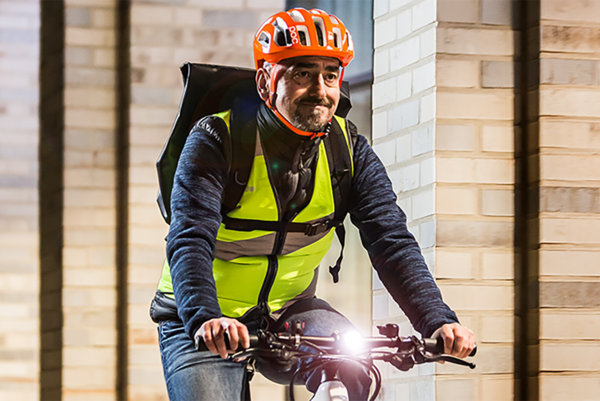Government policy on track: Bikeleasing moves ahead
Share blog article:
Bikeleasing-Service customers are well ahead of what Andreas Scheuer, Germany’s Transport Minister, envisages for the future of mobility in Germany.
With the National Cycling Plan 3.0 (NRVP), Transport Minister Andreas Scheuer is going on the offensive. The new strategy for promoting cycling in Germany relies on broad participation from professional associations as well as from state and local representatives and from an online citizen survey.
Clearly defined milestones on the way to the future
Based on the evaluation of all of the votes and opinions, the NRVP 3.0 sets clearly prioritized milestones on the way to transforming Germany into a bicycle country. The goals rated most urgent by experts, professional associations, elected representatives and citizens are at the top of Scheuer’s to-do list.
- Seamless cycling infrastructure across Germany
A bike-minded infrastructure makes the best case anywhere for turning car drivers and public transport users into cyclists. When well-developed bike lanes, intersections and safe parking facilities give people the feeling that they can get to their destination safely and comfortably by bike, the most important step has been taken. In the end, the transport system as a whole benefits from a bike-based mobility concept.
- Germany, land of the bike commuters
The bicycle should become the first choice for the commute to work. Trips during working hours should also be made primarily by bicycle.
- Giving priority to bike traffic
At the vanguard of sustainable mobility, the bicycle depends on political willpower and social support. Appropriate legal conditions as well as attractive financing models play the key role for a successful transition.
- Town and country by bike
If public spaces in cities and rural areas offer opportunities that invite people to get on their bikes, the quality of life improves through a sustainable reduction in noise and exhaust emissions. This can create vibrant urban and rural regions in which active citizens feel at home.
- It’s safety first
The initiative dubbed “Vision Zero” aims to make cycling in Germany safer for everyone: By 2030, the number of cyclists killed in traffic is to fall by at least 40%.
- Commercial traffic on two wheels
Sustainable transport concepts for urban environments include the bicycle as the main means of transport. As an emission-free solution for the last kilometers of the supply chain, the bicycle is set to largely eliminate CO2 emissions.
- Germany becomes cycling country
Bicycles as a means of transportation, as well as cycling in general, should gain greater acceptance and approval among the general population. Successful innovations and economic concepts thrive on great public interest, and these concepts should be promoted and supported with vigor.
- Cycling combined with advanced technology
Cycling calls for intelligent, smart and networked planning. Spanning infrastructure, utilization of traffic routes and the seamless transition from one mode of transportation to another: With technical support, cycling as a mode of transportation can become faster, safer and more attractive than anyone would ever have imagined.
As the Ministry for Transport and Digital Infrastructure points out, efforts are needed nationwide to ensure that even more people in Germany use bicycles in the future. Above all, a sound infrastructure for bikes of all kinds is a prerequisite for a successful and sustainable switch to the bicycle.
Bikeleasing-Service puts mobility on two wheels
While government policy focuses on providing the infrastructure, Bikeleasing-Service offers ideal terms and condition for employees, employers and the self-employed and is actively engaged in driving the mobility transition. Are you ready to become a pioneer on two wheels? Find out about our attractive leasing options and start cycling toward the future mobility!



